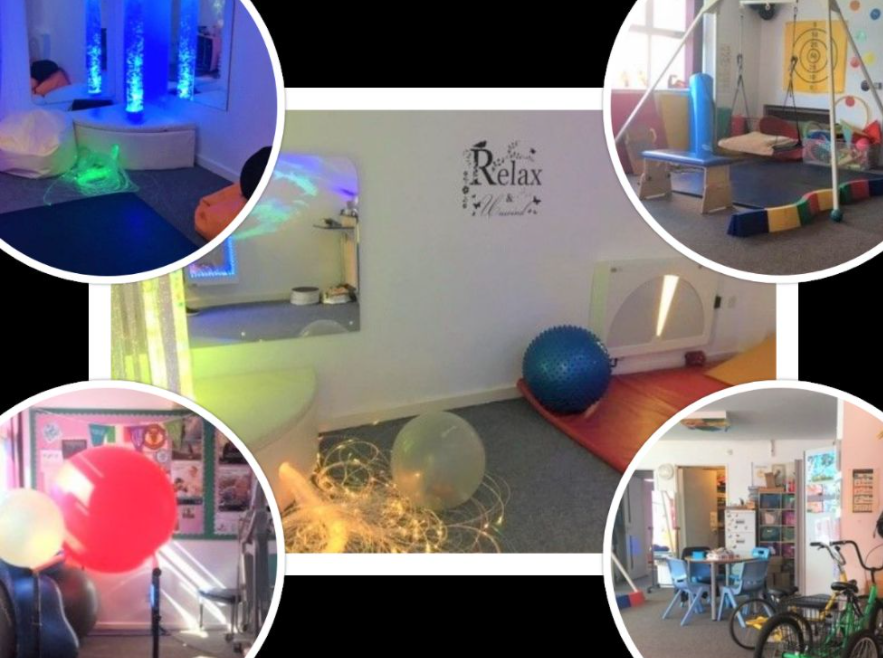Occupational Therapy
What is Occupational Therapy?
Occupational therapy (OT) is a science degree-based, health and social care profession, regulated by the Health and Care Professions Council. OT takes a “whole-person approach” to both mental and physical health and wellbeing and enables individuals to achieve their full potential. Practical support is provided to empower people to facilitate recovery and overcome barriers preventing them from doing the activities (or occupations) that matter to them. This support increases the individual’s independence and satisfaction in all aspects of life.
OT is provided within our school setting and takes place in a well-equipped, bright and welcoming therapy room. We have an Occupational therapist called Viv Leonard and a therapy assistant called Karen Hillyard. Both are well-known figures in the school community.

“Occupation” as a term refers to practical and purposeful activities that allow individuals to live independently and have a sense of identity.
These could be essential day-to-day tasks such as self-care, work or leisure.
Occupation in our setting includes:
- Self-care
- The ability to manage the organisation of self and the environment, and activities of daily living (e.g. changing for Physical Education activities, tying shoelaces, cutlery skills)
- Gross motor skills
- Including the development of postural control/core stability, balance, hand/eye coordination, body awareness and motor planning.
- Fine motor skills
- Including handwriting and tool-use.
- Visual perception/visual motor integration
- Including visual memory, visual spatial relationships and visual discrimination.
- Sensory processing
- The support of sensory-based needs either through the use of strategies, or a sensory diet, to achieve appropriate levels of alertness to access the curriculum.
- Emotional Regulation
- Supporting individuals to understand their feelings and manage them.
How Occupational Therapy enables occupations:
- Modifying and adapting activities that the individual needs, or wants, to do to make these easier.
- Alterations to the physical and social environment, so that restrictions can be reduced
- Prescribing aids and equipment to enable participation
How Occupational Therapy supports the Preparation for Adulthood:
- Enables individuals to develop a personally satisfying routine of everyday activities that creates a sense of purpose and enhances the individual's journey into adulthood.
- Helps individuals to improve their self-care, e.g. by supporting them to learn how to use washing machines or to cook for themselves.
- Helps individuals manage their money by learning budget management skills and how to use banks
- Work with individuals to identify and improve work skills, apply for jobs and stay in employment
- Help individuals to access and use mainstream leisure activities
- Provide advice on how much assistance an individual may need to live independently in the long-term
- Encourage the use of public transport, so people with learning disabilities can access community facilities
- Support individuals to develop parenting skills
The School-based Occupational Therapist provides assessments in the following areas:
- Developmental skills
- Play skills
- Self-care and life skills
- Fine motor skills, including handwriting, typing and recording work in class
- Sensory processing skills (sensory integration)
- Gross motor and co-ordination skills
- Emotional regulation and mental health
- Visual perception skills
- Specialist equipment needs (hoist, slings, seating, adapted cutlery/pens etc.)
- Digital assistive technology and alternative communication
- Memory skills
- Posture

These assessments are enabled by observing the students around school, and obtaining information from parents and teaching staff. Appropriate formal (standardised) assessments may be used.
The Occupation Therapy input may be provided in the form of:
- Individual therapy sessions
- Groups run in class
- Sessions run with other professionals working in the school (i.e. physiotherapist, speech and language therapist, etc.)
- Classroom programmes, delivered by the class team
- Provision of assistive equipment, where appropriate
- Setting up home activity programmes
- Liaison and monitoring with school staff
- Training for school staff and parents.
Therapy is integrated into the curriculum on a daily basis through a cross-disciplinary approach, where the therapist and assistant work alongside specialist teachers, so that skills are consolidated within the classroom. This collaborative approach also means that teachers and therapists learn from each other, sharing skills and developing professionally for the benefit of the students.
Each student is automatically referred to Occupational therapy if needed and this means that if there is an issue, they can be assessed as quickly as possible and treatment is not delayed. However, if you do not wish for your child to access this service, please let school know as soon as possible, and they will be removed from the list.
When the student’s direct intervention has finished, the Occupational Therapist will send a summary report and or attend the students' review with advice and recommendations for school and home. The Occupational therapist will monitor the pupil’s progress and offer further support and advice whenever needed.
If you would like more information, please email:
